It seemed like every day in 2024 we’d wake up to another miracle of differences being put aside in order to get the band back together, of artists we hadn’t thought about in years making headlines by announcing a return to music, or of a certain gothic-rock band finally revealing a street date for their looong teased first album in 16 years. For better or worse, it was the year of reunions—even more so than previous years, as deep-pocketed music festivals have long been playing cupid with splintered band lineups.
More specifically, 2024 was the year of reunions we were excited about, rather than just begrudging tours initiated by former icons reaching the dregs of the fortunes they’d amassed in decades past when a career in music paid big (there were some of those, too, of course). Millennials have finally reached an age where their obscure high school favorites have returned out of nowhere as mature adults to deliver their first new material in over a decade, while older generations of artists can boast even more dramatic gaps in their resumes as their personal lives kept them away from the studio.
And in many cases, the recordings that resulted from these sessions felt totally reinvigorated rather than merely a chore dropped on their laps by an over-eager record label—even if the artist managed their successful comeback campaign without the use of their singing voice. In a year where The Cure nearly topped our general Best Albums list (which also featured long-anticipated solo debuts from The Breeders’ Kim Deal and Portishead’s Beth Gibbons), we wanted to spotlight a few additional contenders for the most exciting comeback LPs of the year. Each of the following releases arrived after a gap of over 10 years—and, perhaps more impressively, hid that fact very well.
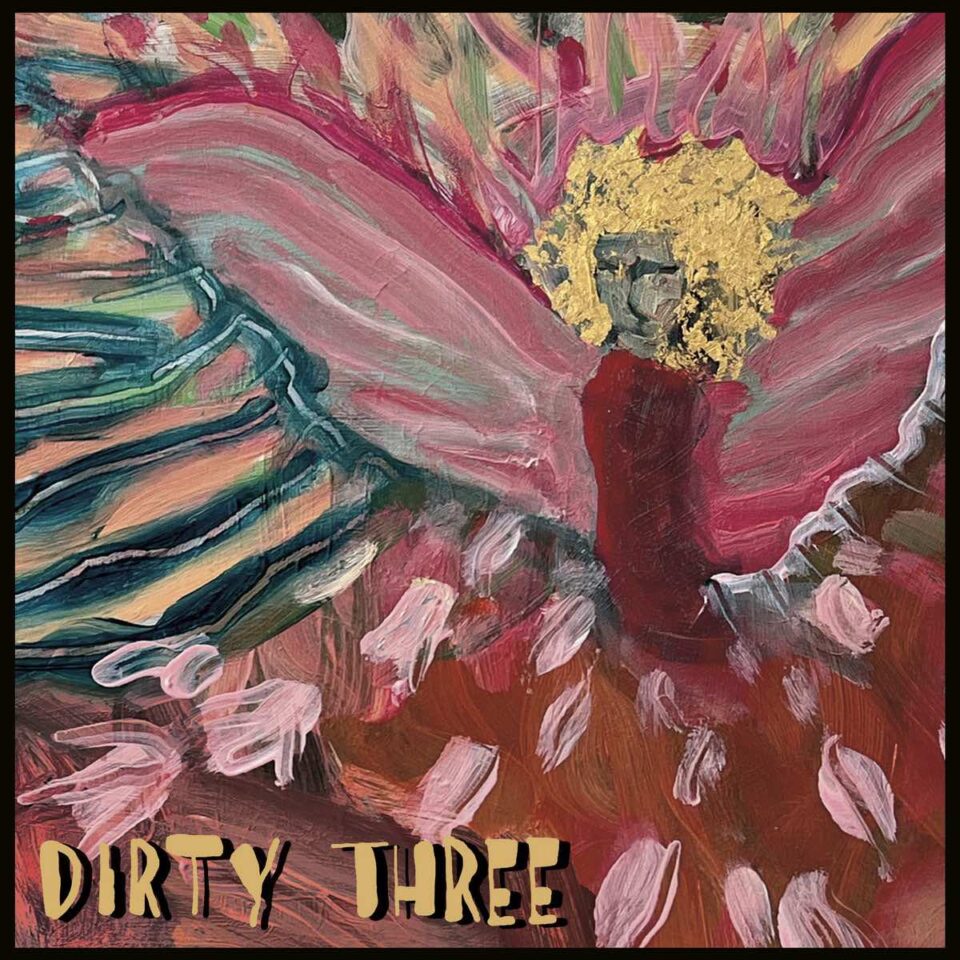
Dirty Three, Love Changes Everything
When we last left Australia’s heroic all-instrumental ensemble the Dirty Three with 2012’s Toward the Low Sun, violinist/keyboardist Warren Ellis, guitarist/bassist/organist Mick Turner, and drummer Jim White were still making free, dynamic-rich improvisational raga-rock with even greater emotion and epic presence than what came before (e.g. 2005’s Cinder)—all without a hint of jazz or pretense. Despite their time away from each other (Ellis most prominently in his work with Nick Cave on Bad Seeds albums and film scores), the Three remained united in Dirty-ness, all of which shows through and sounds off on the aptly titled Love Changes Everything. Though their newest album is culled from lengthy studio jams sculpted into frisky, formidable shape (the closest precedent being the relationship between Miles Davis and producer/editor Teo Macero on collage-like works such as Bitches Brew), their 30-year relationship of brotherly instincts and intuitions connect their newest album to Everything from its rangy, mangy atmospheric start. — A.D. Amorosi
Read our interview with Dirty Three about Love Changes Everything here.
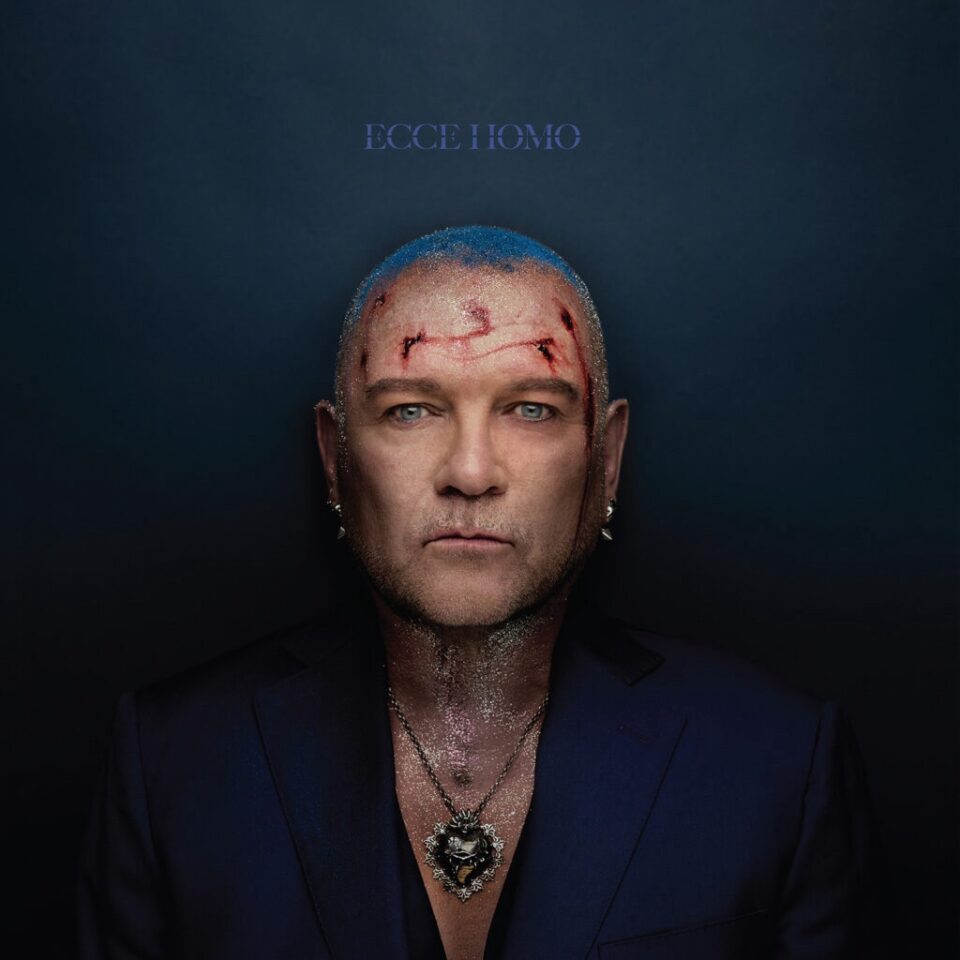
Gavin Friday, Ecce Homo
We last heard from fancifully frank and whimsically poetic Irish songwriter, vocalist, and one-time Virgin Prune Gavin Friday on albums such as Shag Tobacco in 1995 and Catholic in 2011, which detailed the lives of opera singers and street buskers and held to the heart more prayers than a hymnal. Ecce Homo progresses from the devotional invocations of Catholic—13 years its predecessor—with its own winged, stringed orisons such as “Lovesubzero,” where his quiet voice intones the phrase “My love is in your hands / You’ve only to command / I can see it in your eyes / In a world without end.” Sonically, however, Friday and his producer Dave Ball (the non-vocal half of Soft Cell) turn Ecce Homo into a death disco from Bowie’s dirty Berlin period with its ecstatic, rubbery atmospheres and bump-in-the-night rhythms. As far as old friends and lost souls go, Friday still welcomes pals like Bono and the late Sinead O’Connor with open arms and hearts, the latter in particular on the sacred screed that is “Stations of the Cross.” Such a gorgeous record deserves a world’s worth of attention. — A.D. Amorosi
Read our interview with Gavin Friday about Ecce Homo here.
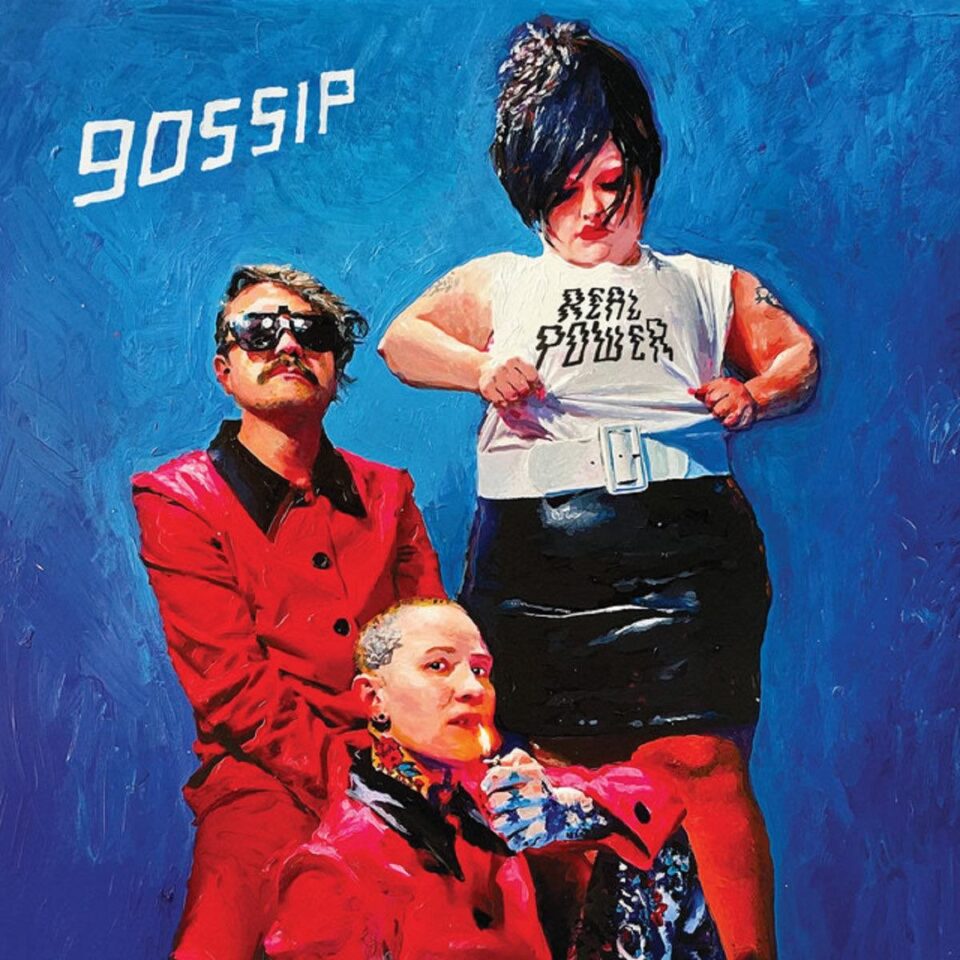
Gossip, Real Power
The second coming of a band after a decade’s break occasionally results in their strongest output. Case in point: Gossip, whose sixth album Real Power arrived this year, a welcome surprise after a 12-year gap since A Joyful Noise. What began as a Rick Rubin–produced solo album for powerhouse frontperson Beth Ditto morphed into a Gossip comeback campaign. This is Rubin’s second time in Gossip’s production seat (the first being on 2009’s Music for Men), and it sees them finding their rhythm together again (“Rick is good at seeing the potential in everybody,” Ditto said when I interviewed her for the project ahead of its release). Rounded out by Hannah Blilie and Nathan Howdeshell, the trio is at its colorful best on Real Power. While the patented Gossip potpourri of electropop, dance-punk, soul, and R&B is threaded through the album, what stands out is the irresistible disco and funk that propel the title track. There’s a touch of country twang on “Tough,” while “Peace and Quiet” is a spare and sparkling ballad. Real Power is sonically streamlined with big production polish and Ditto’s undeniable voice pushing the energy. Perhaps Gossip needed a break that long in order to come back this strong. — Lily Moayeri
Read our interview with Gossip about Real Power here.

The Jesus Lizard, Rack
Noise-rock vets The Jesus Lizard created an apocalyptic level of racket on their first new record in over 26 years. In our interview with vocalist David Yow and guitarist Duane Denison earlier this year for the release of Rack, Denison commented on why the comeback album makes such a strong statement: “I think the record has the rawness and direct simplicity and spaciousness of our Touch and Go albums, but with the focus, clarity, and higher-end of the first Capitol album. It’s a little more full, there’s a little more low end.” This teetering balance between The Jesus Lizard’s two distinct eras is sustained for the entirety of the production, and Yow’s automatic writing technique for the album’s lyrics grabs onto 2024’s political turmoil first and foremost and keeps his storytelling focus as sharp as bassist David Sims’ rhythm section alongside drummer Marc McNeilly. — Kyle Lemmon
Read our interview with The Jesus Lizard about Rack here.
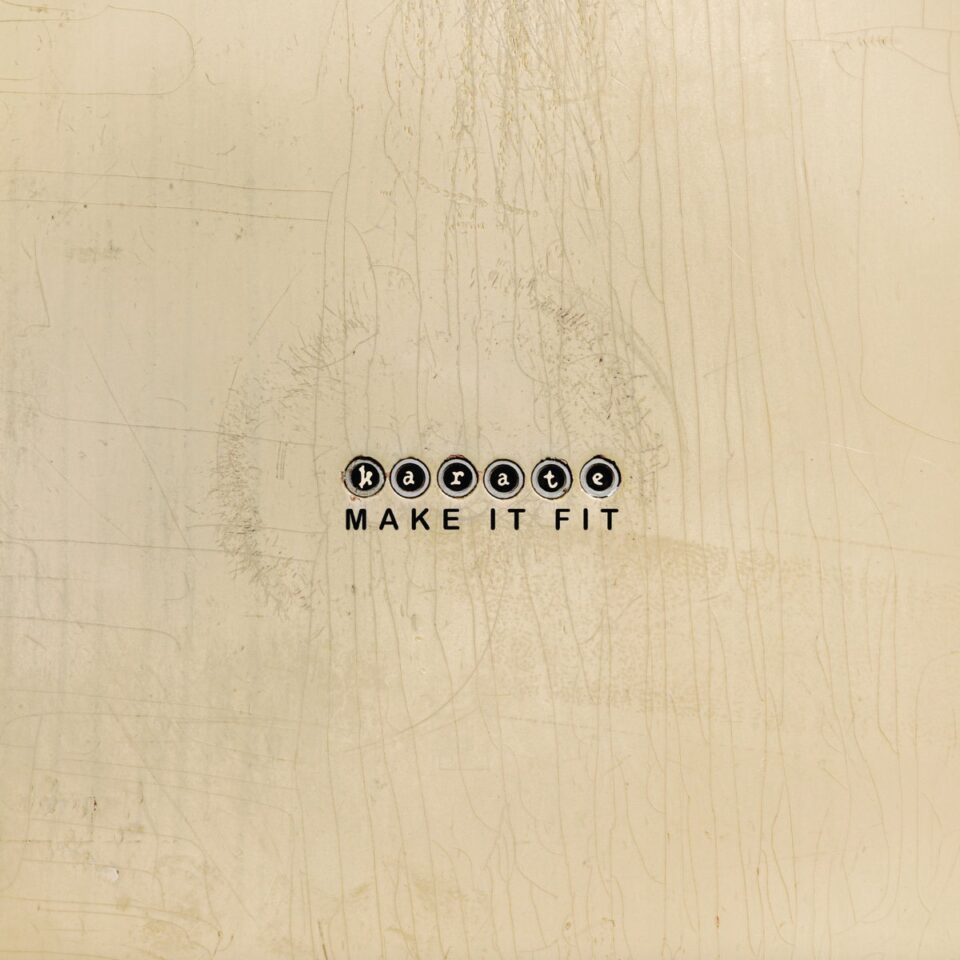
Karate, Make It Fit
It would’ve been enough for Karate, after a 17 year absence, to grace the world with their presence on the live circuit again. That’s what the Boston-based band did in 2022, and they honestly sounded spectacular. The history and expectation that was on their shoulders didn’t seem to weigh them down at all, and their unique brand of jazz-infused indie/emo was truly resplendent. Two years later, the band returned with their eighth studio album and first in 20 years. Make It Fit is more than a worthy addition to their legacy, but also an unexpected one in that the band didn’t seek to just rehash old glories, but also to redefine their sound. It takes some getting used to; opening track “Defendants,” for example, could almost be a Thin Lizzy song, and the jazzy intonations are much less salient than they once were. But as soon as you begin listening without expectations, these 10 songs wonderfully shift the focus from what was onto what is. Poignant, pointed, and full of a renewed zest for life, this was hopefully just the beginning of the end of the band’s past. — Mischa Pearlman
Read about some of Karate’s jazz influences here.
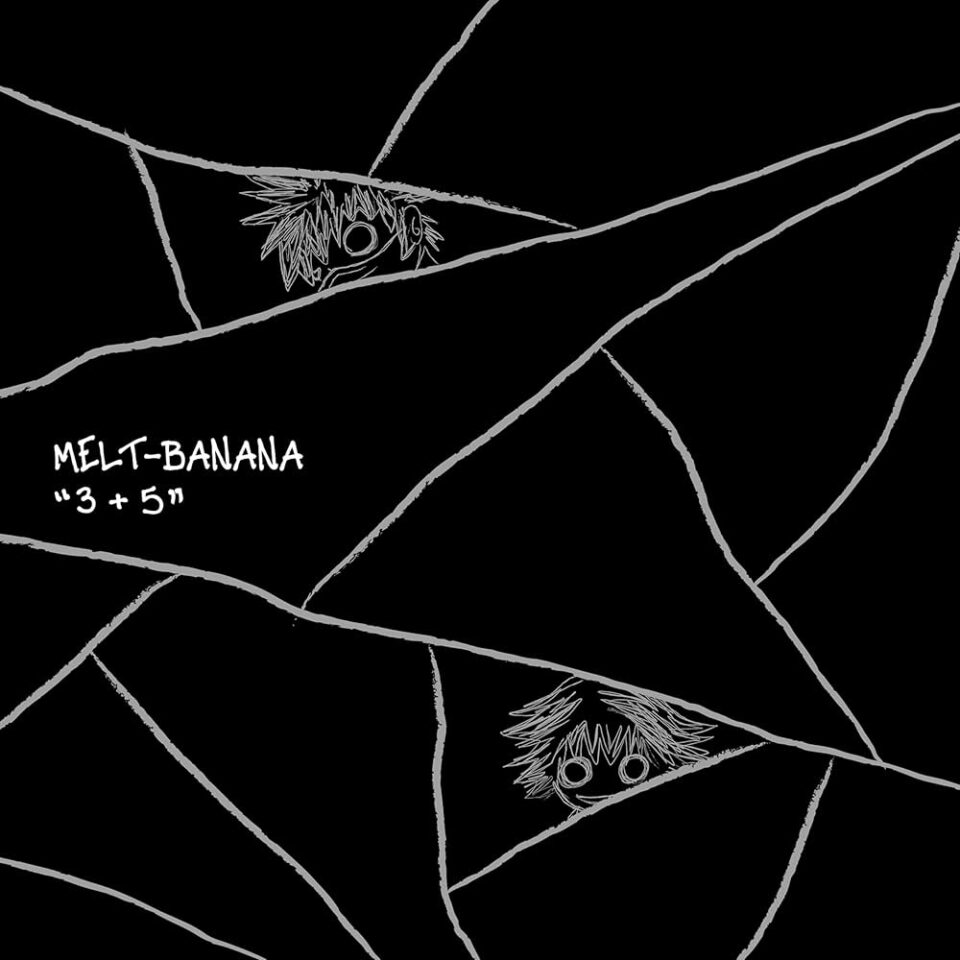
Melt-Banana, 3+5
The storied Japanese noise-rock duo Melt-Banana has operated in such a continuously erratic and abrasive register that the most disarming thing about their first record in over a decade is just how unapologetically fun it is. Returning after 2013’s Fetch, which brought the band greater cult status on a global level, their comeback record could’ve merely leaned into the poppiest inclinations in their work, or denied sanding down their rough edges altogether. Instead, Melt-Banana runs at both possibilities simultaneously with as much gleeful abandon as anything before. What results is a collection of songs that carry all the usual Melt-Banana ingredients—Yasuko Onuki’s chirping vocals alongside Ichiro Agata’s whirlwind guitar tapping and programmed drums—but more buoyant than ever. The melodies are downright exaltant against even the most chaotic elements: Take the the band’s own inverted take on anthemic J-rock on highlight “Scar,” or the shimmering, euphoric closer “Seeds” that still gets riddled with blast beats like submachine gunfire. 3+5 is the most exciting kind of revitalization for a long-dormant experimental band—as fearless in its refusal to retread old ground as it is in its pursuit to keep pushing at every possible extreme, as if no time had passed at all. — Natalie Marlin
Read Melt-Banana’s track-by-track breakdown of 3+5 here.
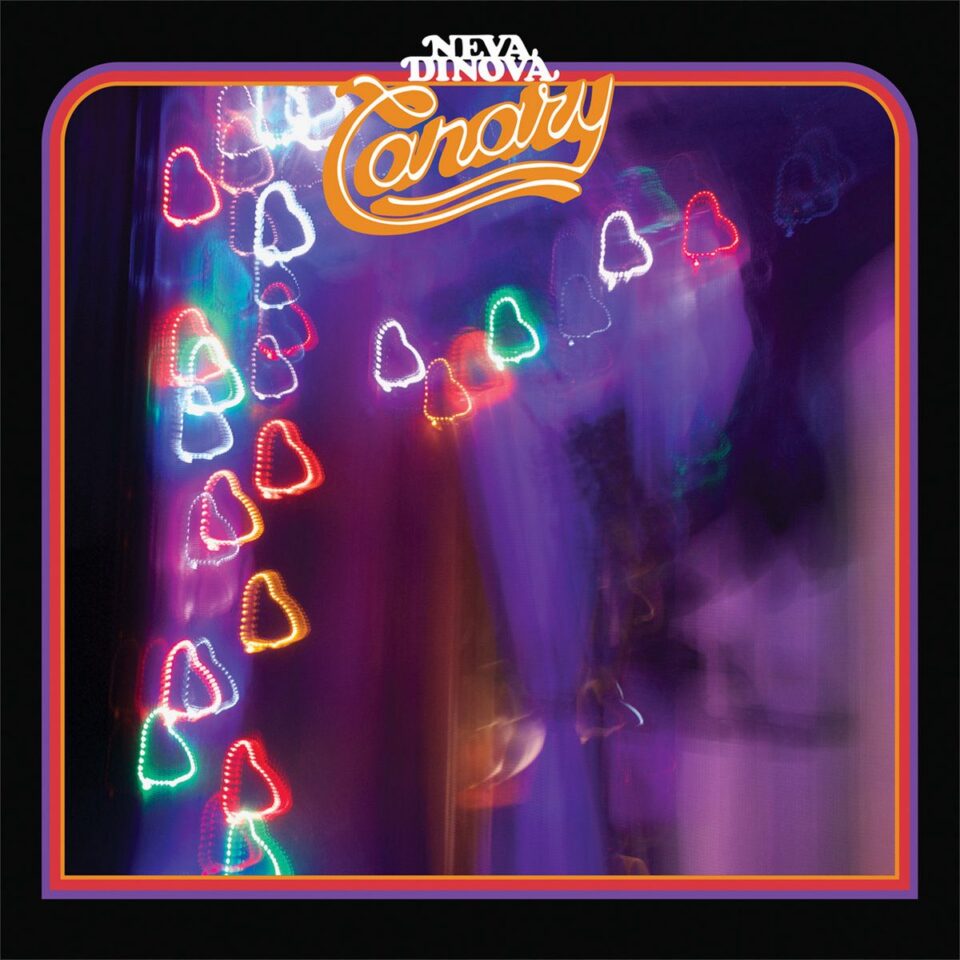
Neva Dinova, Canary
It’s hard to believe that at one point in 2024, we were simultaneously anticipating new albums from Bright Eyes, Cursive, and Neva Dinova, while Azure Ray’s Orenda Fink was also gearing up to release her memoir. Although the projects fronted by Conor Oberst and Tim Kasher have remained prolific over the past few decades, their Omaha-reared peers in Neva Dinova went quiet back in 2008 after the release of their then-final record, You May Already Be Dreaming, which was followed by a solo bid by vocalist Jake Bellows in 2013. Despite enlisting Cursive’s cellist Megan Siebe and guitarist Ted Stevens, the revival of the project as heard on Canary hews much closer to Oberst’s de-angstified folk rock than Kasher’s equally matured yet ever doomier-and-gloomier post-hardcore, despite the occasional grungy riff and morose bar. In fact, Canary may be the most ’00s-Saddle-Creek record released since 2008—either outside of or even within that label’s discography. — Mike LeSuer

Shellac, To All Trains
It’s difficult not to feel bittersweet about Shellac’s To All Trains, which was released just 10 days after the band’s frontman Steve Albini unexpectedly passed away. However, that fact shouldn’t overshadow the fact that the legendary post-hardcore act’s first album since 2014’s Dude Incredible is a dissonant rock masterpiece that sees the trio sounding so massive that it’s amazing the live room at Electrical Audio was able to contain them. The opener “WSOD” immediately sets the tone as it curiously explores an infectious groove that’s deceptively complex and technically jaw-dropping, proving that after over three decades of existence the band haven’t lost their collective fire. Another highlight is “Tattoos,” a song teeming with sonic tension that ebbs and flows with masterful precision and showcases why Albini was indie music’s preeminent producer. Admittedly, To All Trains isn’t easy listening, and the stream-of-consciousness lyrical style may not be for everyone, but Shellac was never meant to be an accessible band—and for fans, this is a magnificent swan song. — Jonah Bayer
Read our review of To All Trains here.
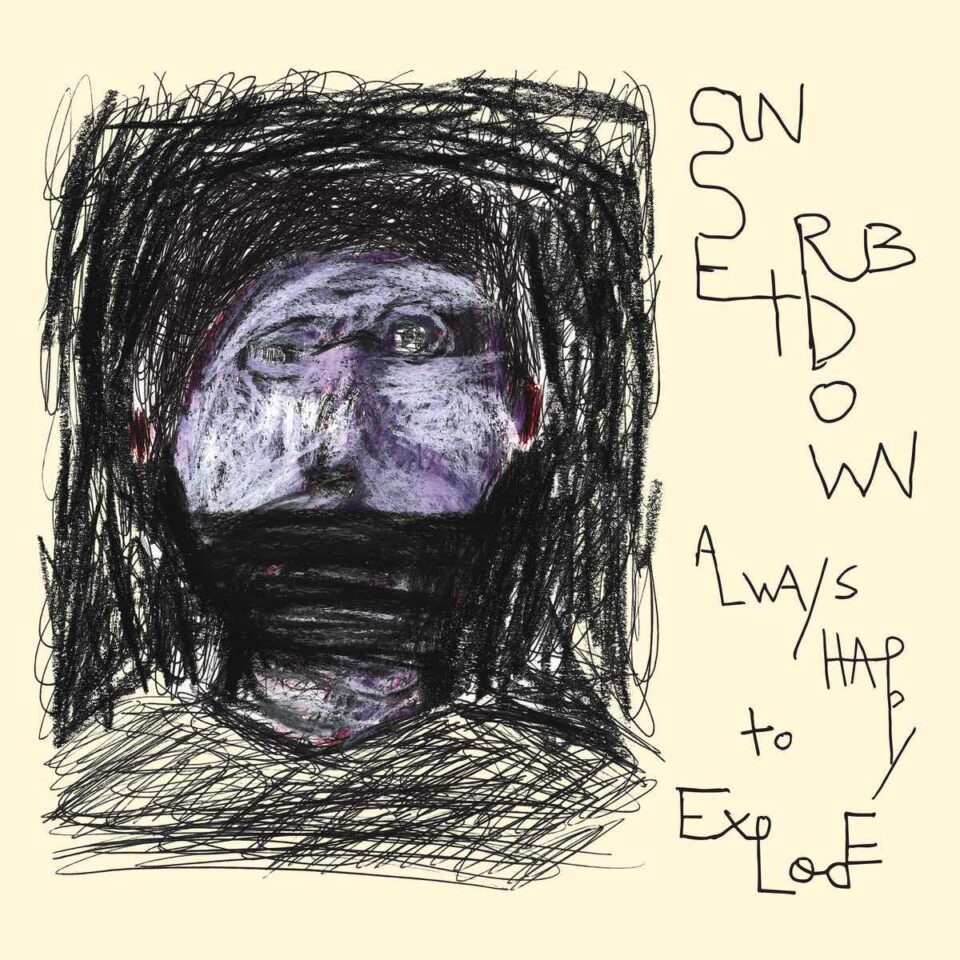
Sunset Rubdown, Always Happy to Explode
I recall being shocked to hear that Wolf Parade had broken up back in 2011, given that it was one of the first dependable 2000s indie bands to officially call it quits. But after catching one of their shows post-reunion in 2018, it became entirely clear why: Despite their undeniable chemistry, it’s simply too limiting a project for both of the band’s troubadour lead songwriters and starkly unique vocalists, to say nothing of the fact that it doesn’t seem like Spencer Krug and Dan Boeckner have much in common as social adults. Some dozen Krug solo experiments later, it was even more shocking to hear that his other group project Sunset Rubdown had resurfaced among the glut of 2024 reunions, though his contribution to the band’s track-by-track breakdown of Always Happy to Explode suggests it may have been a rocky process of reintegration. This first album in 13 years is by far the quartet’s most non-linear, yet this variation somehow works to their advantage as elements of Krug’s Moonface-era somber piano ballads conclude a variety-pack journey that represents far more than just the many lives of one of the band’s members. — Mike LeSuer
Read Sunset Rubdown’s track-by-track breakdown of Always Happy to Explode here.
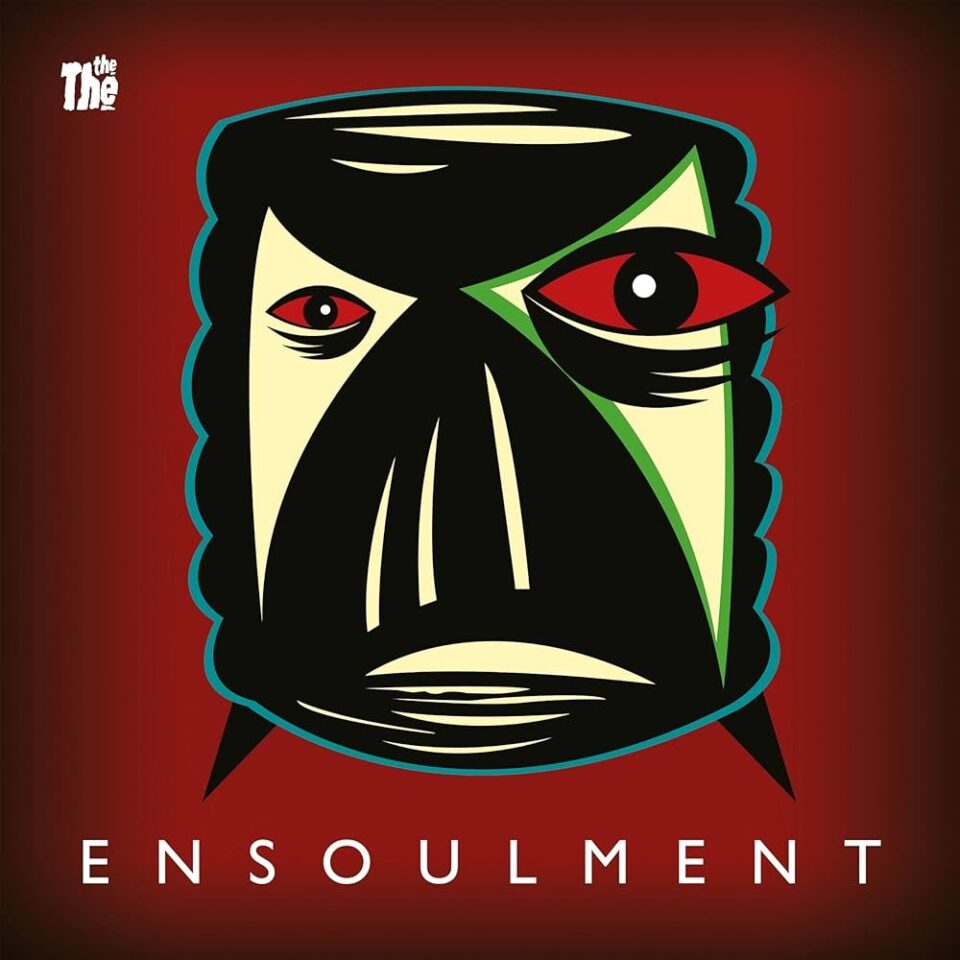
The The, Ensoulment
The years slipped by Matt Johnson and, suddenly, it was a quarter-century since he’d released a full-length studio album as The The. But one spin of Ensoulment—the long-awaited work steadfast fans of the band have been waiting for—and it’s obvious Johnson picked up where he left off. His rumbling baritone is as recognizable and pleasing as it’s ever been. Similarly on-point are his wily and humorous observations threaded through his part-sung and part-spoken delivery. It’s difficult to believe that Johnson held out for so long, especially as, according to him, Ensoulment took six months to make from start to finish. But as he told me earlier this year, initially he was burnt out and disillusioned, then fatherhood took over, then film soundtracks, and later politics. Not having touched an instrument in years, “I started to forget how to do it in a way, and my confidence got affected,” he said. Losing first his brother and then his father sparked Johnson’s motivation, and while Ensoulment isn’t any more somber than “Love Is Stronger Than Death,” it shares that classic’s energy and timelessness. — Lily Moayeri
Read our interview with The The about Ensoulment here.







